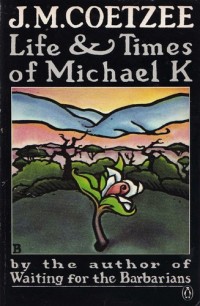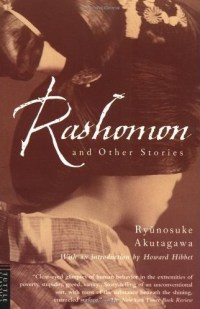Life and Times of Michael K by J.M. Coetzee
 Monday, February 21, 2011 at 10:13PM
Monday, February 21, 2011 at 10:13PM 
First published in 1983
Oppression is a recurring theme in Coetzee novels, and it is the theme that drives Life and Times of Michael K. While the novel is set in South Africa, it is not explicitly (perhaps not even impliedly) a novel about racial oppression. Rather, Michael is treated as an outsider, as subservient, because he is disfigured and mentally dull. Having been raised in an institution where he was taught to peel potatoes before being given a job as a municipal gardener, Michael wants nothing more than to be left alone, nose to the ground, to work the fertile land of his ancestry. He is a simple man with simple needs and the simplest of those--freedom--is bedeviled by travel permits and curfews and work camps, by a civil war he does not understand, by societal demands that do not concern him. Throughout the novel, Coetzee illustrates the oppression of war, of institutions and bureaucracies, of demanding parents, of uncaring employers and landowners. Even the doctor who envisions himself as Michael's savior wants to bend Michael to his own will.
Using prose that is plain yet elegant, Coetzee creates empathy for Michael's plight--we feel for him when his crops are trampled, when he is removed from the land he loves, when he is forced to do physical labor for the benefit of those who have political pull with the authorities, when he is badgered to talk about his past, when he is not permitted to indulge the simple pleasures of sleeping and eating as he chooses. Michael thinks of himself as an earthworm, but he lacks an earthworm's freedom to be true to itself. The last few pages of the novel are almost an ode to simplicity, to the freedom of living off the land, unencumbered by the dictates of those who would imprison nonconformists.
Life and Times of Michael K is an important contribution to world literature. It is also a moving, beautifully written novel.
HIGHLY RECOMMENDED
 TChris |
TChris |  Post a Comment |
Post a Comment |  HR,
HR,  J.M. Coetzee in
J.M. Coetzee in  General Fiction
General Fiction 


